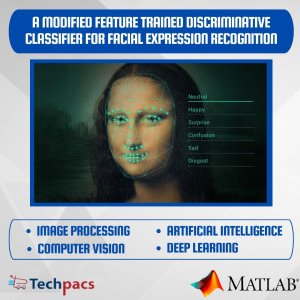Face mask detection using Adaptive Histogram Equalization in Conjunction with Residual Neural Network for Improved Classification
Problem Definition
From the literature study, it is evident that existing ML and DL based face mask detection models have shown promising results. However, there are key limitations and problems that hinder their efficacy. One major issue identified is that most current models rely on classifiers that are not well-suited for image datasets, leading to decreased accuracy and efficiency. Moreover, some models incorporate ML classifiers that struggle to perform effectively with large datasets, resulting in the loss of crucial information during feature extraction. The lack of ability to retain information about object location and direction further adds to the challenges faced by current face mask detection systems.
These limitations collectively contribute to a decrease in accuracy and precision, highlighting the need for an enhanced and more effective model in this domain.
Objective
The objective is to enhance face mask detection systems by developing a new deep learning model that improves classification accuracy and simplifies system complexity. This will be achieved by focusing on image quality enhancements using the Adaptive Histogram Equalization technique and employing a Residual Neural Network (ResNet) for image classification. The aim is to address current limitations in existing models by improving accuracy and efficiency in detecting masked and non-masked individuals.
Proposed Work
In order to address the existing limitations in face mask detection systems, this proposed research aims to introduce a new deep learning model that can significantly enhance classification accuracy while simplifying the overall system complexity. By focusing on two key aspects of the detection process - image quality and classification - this model seeks to improve the performance of existing systems. The first phase involves enhancing the quality of input images using the Adaptive Histogram Equalization technique, which helps in reducing noise and improving visual clarity for more accurate face detection. In the second phase, a Residual Neural Network (ResNet) is employed for classifying images of masked and non-masked individuals. The choice of ResNet is based on its superior accuracy and training capabilities, as well as its ability to improve gradient flow through the network using residual connections.
By combining these two approaches, the proposed model demonstrates promise in achieving higher accuracy rates with reduced system complexity compared to existing face mask detection models.
Application Area for Industry
This project can be used in various industrial sectors such as healthcare, transportation, retail, and public safety. In the healthcare sector, the proposed face mask detection system can be implemented in hospitals, clinics, and public places to ensure that individuals are wearing masks for virus prevention. In the transportation sector, this system can be used in airports, train stations, and bus terminals to monitor passengers for compliance with mask-wearing regulations. In the retail sector, the system can be deployed in supermarkets, malls, and stores to enforce mask-wearing policies among customers and employees. Lastly, in the public safety sector, this technology can be utilized by law enforcement agencies and security companies to identify individuals not wearing masks in crowded areas or events.
The proposed solutions in this project address the challenges faced by industries in enforcing face mask regulations effectively and efficiently. By enhancing image quality and utilizing a deep learning-based ResNet model, the accuracy and classification rate of face mask detection systems are significantly improved. This results in a more robust and reliable system that can accurately identify individuals without masks in real-time, thus helping industries comply with health and safety regulations, reduce the risk of virus spread, and enhance overall public safety. Moreover, the reduced complexity of the model makes it easier to deploy and integrate into existing systems across different industrial domains.
Application Area for Academics
The proposed project on deep learning based face mask detection has the potential to enrich academic research, education, and training in various ways. Firstly, it addresses the current limitations and challenges faced by existing face mask detection models, providing a valuable contribution to the field of computer vision and artificial intelligence. Researchers, M.Tech students, and Ph.D.
scholars can utilize the code and literature of this project to further explore and enhance their own research in similar domains of image processing and object detection.
The project can also serve as a valuable educational tool for teaching and training students in the field of machine learning and deep learning. By studying the methodology and algorithms used in the proposed model, students can gain practical insights into the application of advanced neural networks for real-world problem-solving. The project can be used to demonstrate the process of data preprocessing, image enhancement, and classification using deep learning techniques, providing students with hands-on experience in developing and fine-tuning machine learning models.
Furthermore, the innovative approach of combining image quality enhancement with a ResNet model for face mask detection opens up new possibilities for exploring novel research methods and simulations in the field of computer vision.
The project's emphasis on improving classification accuracy and reducing model complexity can inspire further research on optimizing deep learning models for enhanced performance in object detection tasks.
In terms of potential applications within educational settings, the proposed project can be used to develop more effective and reliable face mask detection systems for ensuring public safety in various environments. The project's focus on improving the accuracy of mask detection in images can be beneficial for implementing automated monitoring systems in places such as airports, hospitals, and public gatherings.
Overall, the proposed project on deep learning based face mask detection has the potential to make a significant impact on academic research, education, and training by offering a practical and innovative solution to a relevant real-world problem. The future scope of this project includes exploring the integration of additional advanced techniques such as transfer learning and object localization to further enhance the accuracy and efficiency of the face mask detection system.
Algorithms Used
The algorithms used in the project are the Adaptive Histogram Equalization technique for enhancing image quality and the Residual Network (ResNet) for classifying images of masked and non-masked individuals. The Adaptive Histogram Equalization technique is applied to improve the quality of input images by reducing noise and unnecessary data, which helps in better face detection with less complexity and improved visualization. The ResNet model is chosen for its deep training capabilities and ability to enhance the accuracy of the model. ResNet's structure allows for easier training of deeper layers and improved gradient flow, leading to better classification results. By combining image quality enhancement and the ResNet model's benefits, the proposed system aims to achieve higher accuracy in face mask detection while reducing overall system complexity.
Keywords
SEO-optimized Keywords: face mask detection, ML, DL, deep learning model, image quality, classification accuracy rate, automatic facemask detection systems, raw images, Adaptive Histogram Equalization, ResNet, residual neural network, convolutional neural network, object location, classification, image processing, accuracy detection rate, COVID-19, computer vision, mask wearing detection, social distancing, public health, pandemic safety, video surveillance, face recognition, mask compliance, AI.
SEO Tags
mask detection, COVID-19, face mask recognition, computer vision, deep learning, object detection, image processing, mask wearing detection, social distancing, public health, pandemic safety, artificial intelligence, video surveillance, face recognition, mask compliance, ML classifiers, DL models, image datasets, ResNet model, accuracy rate, feature extraction, object location, gradient flow, convolutional neural network, residual connection network, research methodology, literature study, dataset analysis, model comparison, data processing, image quality enhancement, classifier performance, system accuracy, model complexity
| Shipping Cost |
|
No reviews found!

















































No comments found for this product. Be the first to comment!